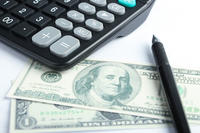Credit cards offer conveniences that are hard to pass up -- extra security, quick identification or simply lack of cash. So you have to ask yourself, "Do I really need a credit card?" The answer is a personal decision. One that depends on how you plan to use the card and whether you will use it wisely or not. Let's take a look at the good and bad of owning a credit card.
The Good
- Credit cards are an universally accepted form of payment, especially when compared to writing checks. There are an increasing number of places where you card is welcome: movie theaters, grocery stores, internet purchases, even the IRS accepts payments via your credit card -- imagine that! And credit cards are usually safer than carrying cash.
- If you have a dispute with a merchant over an item purchased with your card, you may have the right to withhold payment depending on the circumstances. Buying large ticket items with a credit card may afford you more protection if the item should break, not work as advertised, or fail to meet your expectations.
- Many cards have grace periods that last as long as 25 days. Essentially, you're given an interest-free loan for a month before you have to pay off your charges. Money in your savings or checking account will be allowed additional days to earn interest until it is used to pay off the credit card bill. This strategy is only successful if you pay your balance in full each month.
- Credit cards are an invaluable source during emergencies: car repairs, medical emergencies (if you don't have health insurance), or other jams in life that require significant cash quickly.
- You're able to track your personal expenses for a budgeting program by using a credit card statement. Purchases can be identified by category so you'll know where your money is going. Record-keeping will be easier than if you used cash.
The Bad
- The convenience and buying power credit cards offer may drive you deeply into debt if you're not careful. High credit limits may lead to impulse buying and overspending could become a reality.
- Having a large number credit cards in your name might hurt you when you apply for additional credit -- for a bigger purchase, such as a car or home. If creditors see too many lines of credit, they may deny your application because they think you're overextended. Keeping track of that many cards may also become a financial nightmare if they're lost or stolen.
- Many credit cards have high interest rates and annual fees. Not paying off the balance in full each month will result in added debt. Continuing this cycle for a long period of time will do considerable damage to your financial well-being.
Making Choices
Consider the pros and cons of making credit cards a part of your financial strategy. Your decision is a very personal one. You should look at the positive aspects of owning a card versus the possibility of overextending yourself and going into debt. Whatever decision you make, ensure that good money management and common sense prevail.











